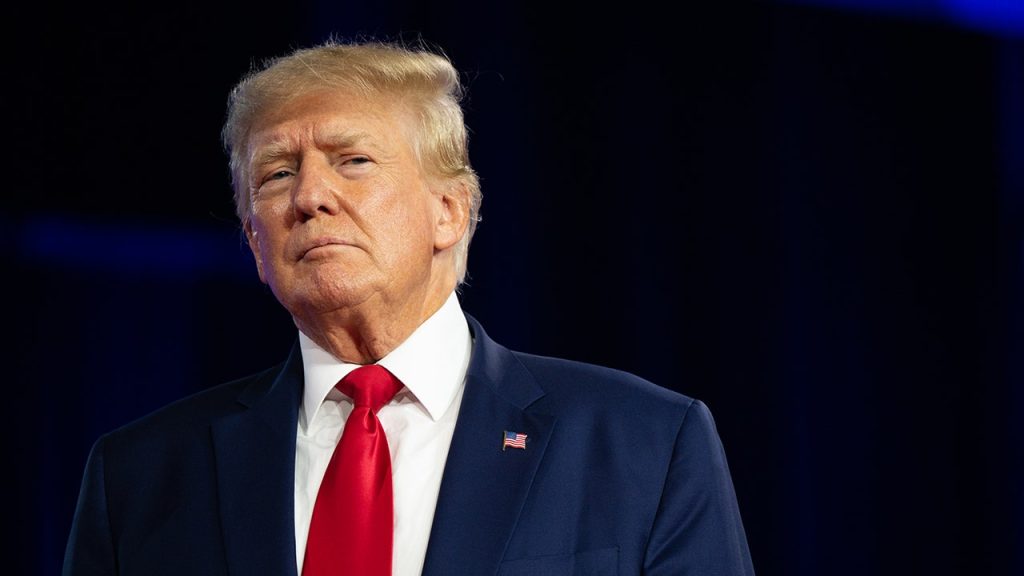Former President Trump recently made a bold statement on social media regarding his commitment to defending his constitutional rights, despite facing potential jail time for violating a gag order in his ongoing criminal trial. He quoted American Founding Father Patrick Henry, saying “Give me liberty or give me death.” The gag order prohibits Trump from making public statements about witnesses, counsel in the case, court staff, or family members of staff. Trump expressed frustration over feeling unfairly silenced and criticized what he described as a “Fascist mindset” emanating from Washington, D.C.
In response to the threats of jail time for defending his free speech rights, Trump stated that he would be willing to make that sacrifice to uphold the Constitution, emphasizing the importance of free speech over his personal freedom. His comments have sparked controversy, with some media personalities suggesting he should be imprisoned to make a point. Trump took aim at Judge Merchan and other New York judges, accusing them of being corrupt and implying a coordinated effort to attack him and the Republican Party. He underscored the necessity of protecting the First Amendment as a fundamental pillar of American democracy.
Trump’s reference to Patrick Henry’s impassioned call for liberty in 1775 resonates with his own defiance against what he perceives as a suppression of his free speech rights. Henry’s historic speech during the lead-up to the American Revolution reflected a willingness to fight for independence and liberty at any cost, echoing Trump’s own determination to uphold his constitutional rights. Trump’s critics have dismissed his rhetoric as hyperbolic and accused him of undermining the legal process by disregarding the gag order.
The escalating legal battle between Trump and the New York court system underscores broader tensions surrounding free speech, judicial independence, and the role of former political figures in public discourse. Trump’s combative stance against perceived judicial overreach and censorship has galvanized supporters and critics alike, setting the stage for a potentially contentious legal showdown. As the former president continues to push back against restrictions on his speech, the implications for political discourse and constitutional freedoms remain uncertain.
The clash between Trump and the judiciary highlights broader debates about the limits of free speech, the separation of powers, and the rule of law in a polarized political climate. Trump’s willingness to defy court orders and risk imprisonment to defend his right to express himself reflects a broader trend of political figures challenging institutional constraints on their behavior. The outcome of this legal battle could have far-reaching consequences for the future of free speech protections, the power of the judiciary, and the norms governing the conduct of public officials.
In the midst of heightened tensions between Trump and the judiciary, the former president’s invocation of patriotic rhetoric and historical parallels underscores the high stakes of the ongoing legal dispute. The parallels drawn between Trump’s defiance and historical struggles for liberty reflect a broader narrative of resistance against perceived tyranny and oppression. As the legal drama unfolds, the implications for democracy, free speech, and the rule of law will continue to shape the political landscape and the future of American governance.


